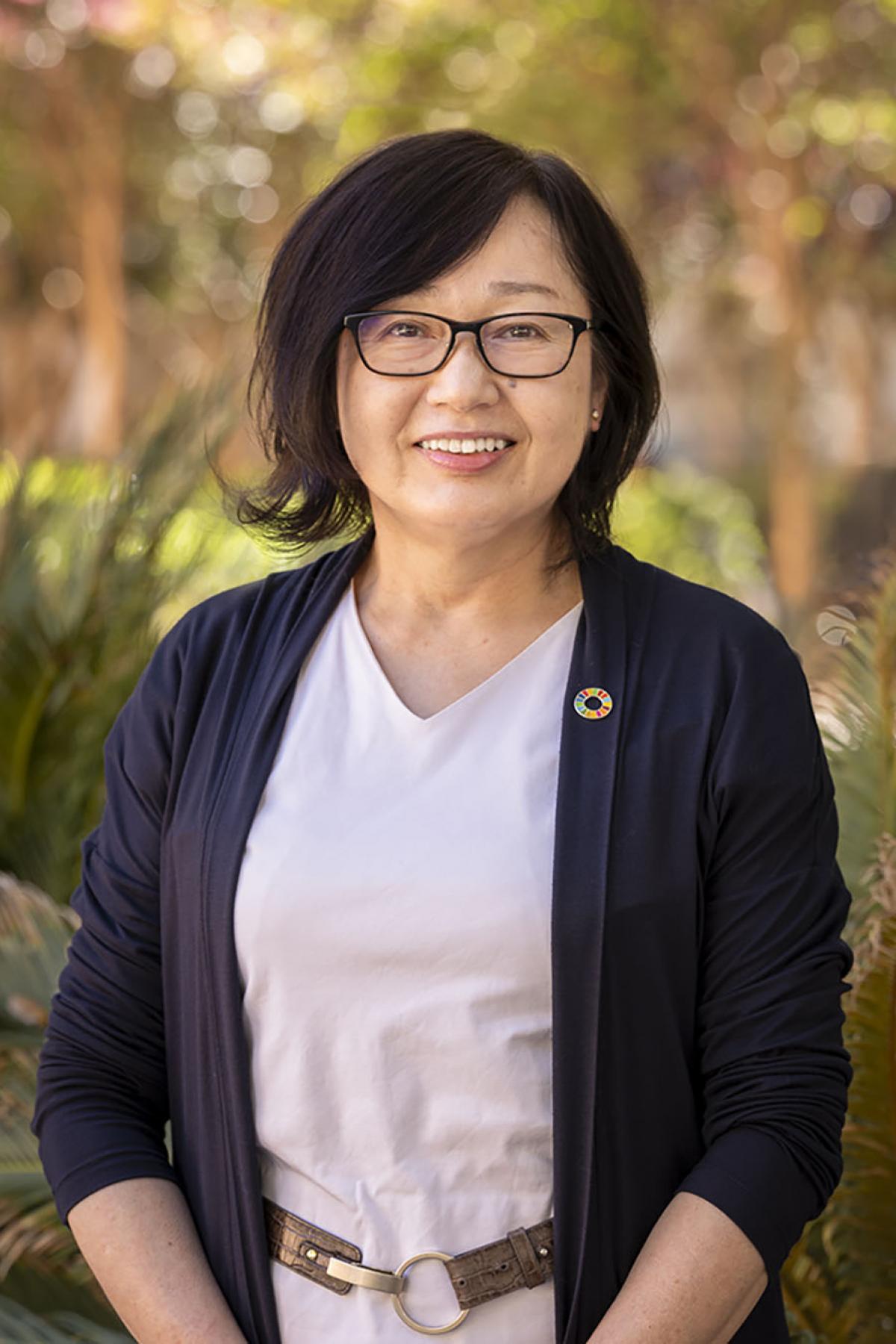ISER Impact Story - Shoko Yoneyama

Transformative education to push beyond eco-anxiety
Climate change is not only one of the greatest looming threats to our physical environment, but also one of the largest contributors to increased stress and anxiety among young Australians. Many young people in Australia are experiencing eco-anxiety, and report feeling helpless and powerless in the face of this challenge. As climate change progresses, and media coverage becomes more emotive and divisive, eco-anxiety will become more and more prevalent among our youth.
But what if we could transform these negative feelings into positive energy? What if we could help young Australians harness their strong feelings about climate change and use them as a source of motivation or inspiration to create change in the world? It’s no mean feat but turning eco-anxiety into eco-action is exactly the mission that Associate Professor Shoko Yoneyama and a multi-disciplinary team of researchers at the University of Adelaide are taking on, using the power of transformative education.
Transformative education is not just about learning facts and figures – it’s about learning to think critically and creatively about the world we live in and about empowering learners to take ownership of their actions.
Yoneyama and her team member Danielle LeMieux have already developed an award-winning course centred around climate and pandemic anxiety that promoted student wellbeing using transformative education. One student reflected on how her participation in the program altered her attitude towards climate change:
"As this course unfolded and these enormous issues were being discussed, analysed, and put in another perspective, I seemed to establish a bit of courage to confront these issues and start to see the positive side."Student Testimonial
Now, with support from the University of Adelaide’s Institute for Sustainability, Energy and Resources (ISER) and the Faculty of Arts, Business, Law and Economics (ABLE), the team aims to scale up their existing educational programs in an evidence-based way. They’re combining survey and qualitative data to identify the right mix of factors that will allow them to apply transformative education more broadly in their project funded by the FAME Sustainability Strategy.
A parallel study led by Yoneyama, specifically engaging Australian and Japanese youth, has attracted a prestigious DFAT Australia-Japan Foundation Grant. It uses similar innovative education approaches to tackle eco-anxiety and explore new ways of transformative education.
The team driving this globally impactful innovative research is strikingly interdisciplinary. Apart from Associate Professor Yoneyama, who is a sociologist in Asian Studies, Professor Melissa Nursey-Bray, Dr Anna Szorenyi, Dr Dianne Rodger, Dr Ariane Gienger, Danielle LeMieux and Celeste Hill represent the Faculty of Arts, Business, Law and Economics (ABLE), with expertise spanning anthropology, geography, gender studies, and Indigenous studies. Professor Philip Weinstein and Dr Scott Hanson-Easey bring knowledge from the Faculty of Health and Medical Sciences (HMS), and Dr Dominic Mcafee represents the Faculty of Science, Engineering and Technology (SET).
The research team has united across fields to provide the tools and policy guidance needed to reimagine higher education for a sustainable future in the face of a changing climate. The goal is to empower students to ameliorate eco-anxiety.

Yoneyama brings a unique, innovative approach to research and education through her academic expertise in contemporary animism as an alternative ontology. Alternative ontologies are philosophical frameworks that provide new ways to consider our existence or our connection with the world. Animism is a particularly holistic way of reconsidering anthropocentric human-nature relationships, and as Yoneyama writes,
“Postmodern animism is a philosophy that sees nature as a combination of the lifeworld and the spiritual world thus enabling us to engage with climate change in a radically different way. It helps us to conceive a new paradigm to reimagine a sustainable future for the Anthropocene.”Shoko Yoneyama
Another member of the research team, Professor Melissa Nursey-Bray, is an ARC Future Fellow working to identify how all knowledge, especially Western and Indigenous knowledge, can work together to inform environmental policy, with a focus on climate change adaptation.
Applying this truly extraordinary range of expertise to transformative education allows the team to address how young people conceptualise climate change and the human-nature relationship and respond to their eco-anxiety in such a way that addresses their ontological insecurity.
ISER will use its unique position and resources to facilitate connections and partnerships to support this work. By addressing this critical challenge of how we can invigorate and inspire our youth through education and transform their eco-anxiety into a positive energy, ISER can help the research team enhance sustainability.
As for where this collaborative research will lead, Yoneyama says,
“Beyond empowering our youth and working towards sustainable solutions, our research aims to provide recommendations for education curriculum design and delivery. We have connections with UNESCO’s Education for Sustainable Development group, which aims to reimagine a new kind of education towards 2050 through UNESCO’s 2021 flagship report, Reimagining Our Futures Together. This work will have an enormous impact on education in the coming decades.”Shoko Yoneyama
This important work pushes the boundaries of education and knowledge creation and applies a truly innovative approach to the problem of eco-anxiety and, more broadly, to reimagining higher education. The programs developed by these researchers will enhance students’ ability to navigate complex contemporary crises like climate change, ultimately enabling them to bring about a more sustainable future.
